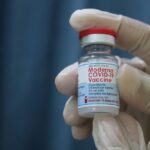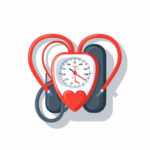A stroke doesn’t just affect the body; it shakes the mind and spirit as well. One day, you’re cruising through life, and the next, everything feels upended. It’s like your world has been tilted off its axis, and finding your balance again takes time. The emotional impact of a stroke can be just as challenging as the physical recovery. From feelings of frustration to moments of grief, it’s a rollercoaster ride of emotions that’s entirely normal—but not something you have to tackle alone.
Strokes often bring sudden changes to your life, and those changes can be overwhelming. Maybe you’re navigating physical limitations, grappling with communication challenges, or feeling like your independence has been stripped away. All of this can lead to emotions like sadness, anger, fear, or even guilt. Understanding that these feelings are part of the journey is the first step toward addressing them.
Why Mental Health Matters in Recovery
It’s easy to focus on the physical side of recovery, but mental health deserves just as much attention. Your emotional well-being plays a huge role in how well you recover and adapt to life post-stroke. Think of it this way: your brain and body are on the same team. If one member of the team is struggling, the other can’t perform at its best.
Ignoring mental health challenges can make recovery feel like swimming upstream. Depression and anxiety are common after a stroke, affecting up to one-third of survivors. But addressing these issues can help you regain motivation, improve your quality of life, and even speed up your physical recovery. Taking care of your mind is a vital part of rebuilding your life after a stroke.
Coping with Emotional Highs and Lows
One moment, you might feel hopeful and determined; the next, you’re overwhelmed and ready to throw in the towel. These emotional swings can be exhausting, but they’re a natural part of the recovery process. Your brain has been through a trauma, and it’s adjusting to a new normal—so give yourself some grace.
Start by acknowledging your emotions instead of pushing them aside. It’s okay to feel upset or scared. Sharing your feelings with someone you trust, whether it’s a loved one or a therapist, can be incredibly cathartic. Sometimes, just saying the words out loud can lighten the load.
Finding healthy outlets for your emotions can also help. Maybe it’s writing in a journal, painting, or even gardening. Activities like these give you a way to express yourself while also offering moments of calm and focus. They’re little pockets of peace in what might otherwise feel like a stormy sea.
Building a Support System
Recovery is not a solo journey—nor should it be. Having a support system can make all the difference in how you navigate life after a stroke. Your team might include family, friends, healthcare providers, therapists, or even a stroke support group. The key is surrounding yourself with people who uplift you and understand what you’re going through.
Family and friends often want to help but might not know how. Don’t be afraid to communicate your needs. Whether it’s asking for a ride to therapy or just needing someone to listen, being open about what you’re feeling and what you need can strengthen those relationships.
Support groups, whether in person or online, can also be a game-changer. There’s something incredibly validating about connecting with others who’ve walked a similar path. They understand the frustrations and triumphs in a way that’s hard to explain to someone who hasn’t experienced it. Plus, they’re a great source of practical advice and encouragement.
The Power of Professional Help
Sometimes, the emotional aftermath of a stroke can feel too big to handle on your own. That’s where professional help comes in. Therapists and counselors are trained to help you navigate the complexities of post-stroke life. They can provide coping strategies tailored to your unique situation and offer a safe space to explore your feelings.
If depression or anxiety is interfering with your daily life, talking to a healthcare provider about medication might also be an option. There’s no shame in needing a little extra help—it’s just another tool in your recovery toolbox. Remember, seeking professional help isn’t a sign of weakness; it’s a courageous step toward healing.
Finding Joy in the Journey
Recovery can be tough, but it’s also filled with moments of growth and discovery. Finding joy in the small victories can make a big difference in how you view your journey. Maybe it’s the first time you manage to tie your shoes again or the day you laugh so hard you forget about your worries for a moment. These little wins are worth celebrating.
Gratitude can also be a powerful tool. Taking a few minutes each day to reflect on what you’re thankful for—whether it’s a sunny day, a kind gesture, or simply making it through another therapy session—can shift your perspective and boost your mood.
Staying Patient with Yourself
Recovery isn’t linear, and it’s rarely fast. There will be good days and not-so-good days, and that’s okay. Patience is key, both with your progress and with yourself. Comparing yourself to others or to where you were before the stroke won’t do you any favors. Instead, focus on your own journey and the progress you’ve made, no matter how small it might seem.
It’s also important to recognize that setbacks don’t erase progress. They’re just part of the process. Each time you face a challenge and keep going, you’re building resilience and strength. Give yourself credit for showing up and trying, even on the hard days.
Looking Ahead with Hope
Life after a stroke might look different, but it can still be full of meaning, joy, and connection. With time, effort, and support, many people find that they can adapt and even thrive. Your story isn’t over—it’s just taking a new direction. And with every step forward, you’re proving how strong and capable you truly are.
Lean on your support system, seek professional help if you need it, and take things one day at a time. Celebrate your progress, no matter how small, and remember that it’s okay to ask for help. You’re not alone in this, and brighter days are ahead.








